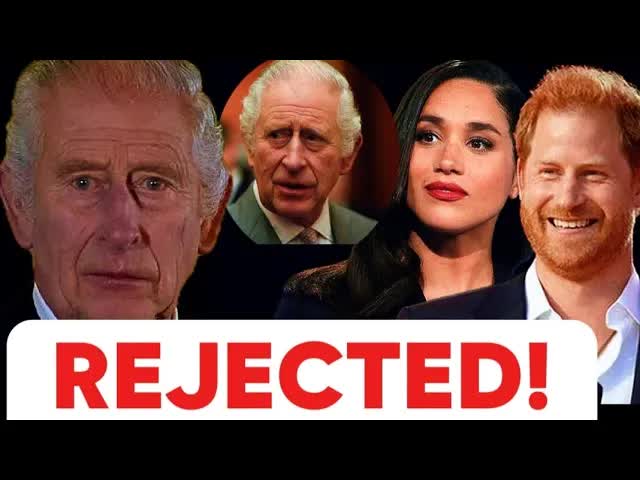King Charles’s forthcoming trip to Australia is stirring quite the buzz, and not all of it is positive.
The British monarchy has a long-standing relationship with Australia, dating back to the late 18th century when Britain established a penal colony there.
Fast forward to today, Australia stands as a vibrant, independent nation, yet it still holds constitutional ties to the crown.
Royal tours have traditionally aimed to strengthen these historical connections, but this time, the atmosphere surrounding King Charles’s visit is anything but welcoming.
The announcement of the king’s tour has already ignited controversy, with prominent Australian politicians signaling their intent to distance themselves from royal events.
This isn’t just idle chatter; it’s a powerful statement reflecting the monarchy’s diminishing influence in a country that seems increasingly disenchanted with its royal ties.
The political landscape is buzzing with dissent, and the opposition to the upcoming visit spans multiple parties, showcasing a united front against the monarchy.
High-profile figures such as a fiery senator from Queensland and the dynamic leader of the New South Wales Greens have made it clear they will not participate in any royal activities.
This departure from traditional political decorum, where leaders typically come together to welcome visiting royals, underscores a significant shift in public sentiment towards the monarchy.
The implications of this growing resistance could turn the royal tour into a public relations disaster for King Charles.
What does this mean for the king?
Well, the absence of key political figures at his events sends a loud and clear message: many Australians no longer see value in maintaining these royal traditions.
This disconnect could further alienate the monarchy from a populace that is already weary of its presence in their lives.
While some might dismiss these political protests as mere symbolism, they represent a broader trend of dissatisfaction that politicians are keenly aware of.
The Australian public’s growing disenchantment with the monarchy has been building for years, if not decades.
Recent polls reveal that a significant portion of the population would prefer a republic over the current monarchical system.
Young Australians, in particular, are vocal about their desire for change, viewing the monarchy as an outdated institution that fails to resonate with modern values.
The digital sphere is rife with comments and posts expressing frustration with the monarchy’s ongoing role in Australian affairs.
This isn’t just a fleeting sentiment; it’s a wellspring of discontent questioning the relevance of a foreign monarchy in contemporary Australia.
Many citizens wonder why their taxes should support a king living thousands of miles away or why a symbol of colonialism should still hold sway in a nation that prides itself on diversity and equality.
The royal tour, rather than being a bridge to rekindle affection, is seen by many as a desperate attempt by King Charles to connect with the people, met with skepticism and cynicism instead.
As King Charles prepares for his visit, the public’s message is unmistakable: the monarchy appears out of touch.
This sentiment could significantly impact the future of the royal family in Australia.
The upcoming tour could serve as a pivotal moment, potentially reshaping the relationship between the nation and the British crown.
But it’s not just politicians who are voicing their dissent; everyday Australians are equally disillusioned.
The king’s chilly reception from political leaders reflects a broader public sentiment that has been brewing for some time.
As King Charles steps onto Australian soil, he faces a daunting challenge.
His reign has already been marred by controversy, and this tour risks further tarnishing his reputation on an international stage.
The Commonwealth, once a bastion of support for the monarchy, now shows signs of wavering loyalty.
Historically, royal visits have been opportunities for monarchs to showcase their relevance, yet King Charles’s planned Australian tour has become a focal point for anti-monarchy sentiments.
Previous visits to other Commonwealth nations, such as Canada, have also been met with protests, indicating a trend that could spell trouble for the king.
This tour stands as a critical juncture for King Charles, presenting a chance to win over the Australian public or further entrench the divide.
The stakes couldn’t be higher.
Each snub from political leaders, each public relations misstep, adds layers to a narrative portraying a king disconnected from the realities of modern society.
The Australian tour could either solidify King Charles’s legacy or serve as a glaring reminder of his struggles.
As the nation braces for the king’s arrival, the question looms large: Will this visit reinforce the monarchy’s place in Australian hearts or hasten its decline?
Looking ahead, two scenarios emerge.
The monarchy could persist in its current form, weathering this storm as it has in the past, or this tour could ignite a movement pushing for a republic.
With public distaste and political resistance mounting, the possibility of a referendum on the monarchy’s future could resurface.
The Australian people hold the power to dictate the monarchy’s fate, and their voices will shape the narrative moving forward.
As the world watches, the impending royal tour is more than just a visit; it’s a litmus test for King Charles’s reign and the monarchy’s relevance in the 21st century.
The outcome remains uncertain, but one thing is clear: the monarchy’s future in Australia hangs in the balance, teetering on the edge of a potential new era.
